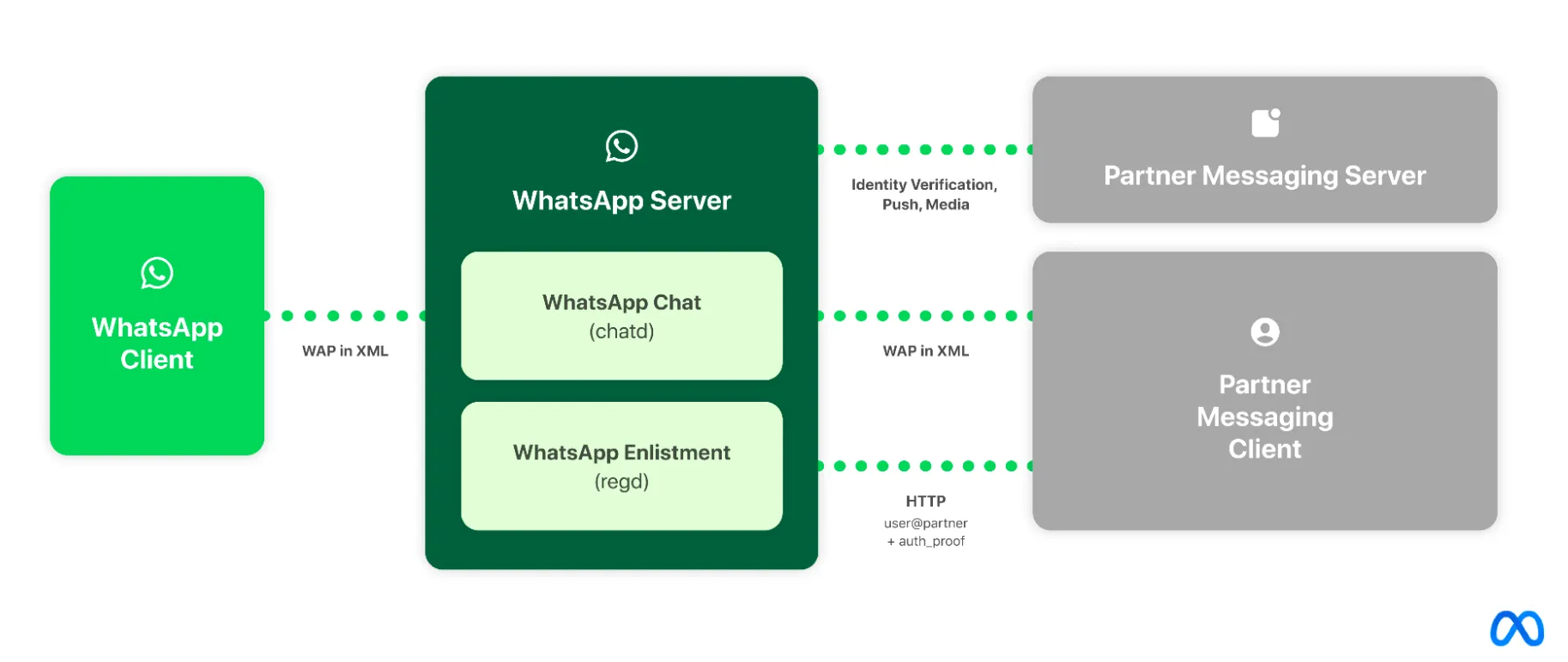Meta today announced further details regarding its strategy to ensure interoperability between its messaging platforms, WhatsApp and Messenger, and third-party messaging services, as mandated by the Digital Markets Act (DMA) in the EU. The company emphasizes that users will have the choice to opt into engaging with third-party chats, recognizing the potential risks of spam and scams associated with these integrations. While previously mentioned, Meta now unveils specifics regarding the agreement third parties must sign to participate in these integrations, including the requirement to adhere to the Signal protocol for encryption, though exceptions may be considered in the future.
Meta stipulates that third-party developers may only use an alternative protocol if it provides equivalent security assurances to the Signal protocol, which is lauded as the standard for end-to-end encryption (E2EE). Highlighting the advantages of the Signal protocol, Meta expresses a preference for its adoption among third-party services. Technical insights into the encryption process are provided, involving the construction of encrypted message structures using Protocol Buffers by third parties, which are then packaged into message stanzas via XML and transmitted via Meta's servers.
Regarding media files, third-party providers are tasked with hosting images and videos sent by their client apps to Meta's users. Meta's messaging clients will retrieve encrypted media from these third-party servers through a Meta proxy device. These details are crucial for Meta's messaging app users, particularly those accustomed to E2EE, as they seek assurance of the continued security of their conversations under the DMA's framework.
However, Meta acknowledges limitations in ensuring the security of messages once they reach third-party providers, implying potential security concerns with third-party interoperability. While Meta argues for the robustness of its solution based on the Signal protocol, it acknowledges uncertainties regarding third-party handling of messages. The company's approach is positioned as facilitating entry for new players while maintaining control over interoperability standards, leveraging its existing infrastructure's scalability to manage high message volumes.
Meta emphasizes the necessity for third-party providers to agree to terms outlined in agreements with Meta or WhatsApp, which will enable interoperability. The publication of WhatsApp's Reference Offer for third-party providers is underway, with plans to release Messenger's Reference Offer soon.
 |
| Meta today announced further details regarding its strategy to ensure interoperability between its messaging platforms, WhatsApp and Messenger, and third-party messaging services |

